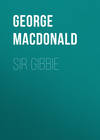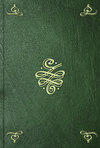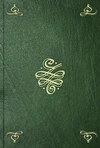Kitabı oku: «Sir Gibbie», sayfa 13
Thus had Gibbie his first lesson in the only thing worth learning, in that which, to be learned at all, demands the united energy of heart and soul and strength and mind; and from that day he went on learning it. I cannot tell how, or what were the slow stages by which his mind budded and swelled until it burst into the flower of humanity, the knowledge of God. I cannot tell the shape of the door by which the Lord entered into that house, and took everlasting possession of it. I cannot even tell in what shape he appeared himself in Gibbie's thoughts—for the Lord can take any shape that is human. I only know it was not any unhuman shape of earthly theology that he bore to Gibbie, when he saw him with "that inward eye, which is the bliss of solitude." For happily Janet never suspected how utter was Gibbie's ignorance. She never dreamed that he did not know what was generally said about Jesus Christ. She thought he must know as well as she the outlines of his story, and the purpose of his life and death, as commonly taught, and therefore never attempted explanations for the sake of which she would probably have found herself driven to use terms and phrases which merely substitute that which is intelligible because it appeals to what in us is low, and is itself both low and false, for that which, if unintelligible, is so because of its grandeur and truth. Gibbie's ideas of God he got all from the mouth of Theology himself, the Word of God; and to the theologian who will not be content with his teaching, the disciple of Jesus must just turn his back, that his face may be to his Master.
So, teaching him only that which she loved, not that which she had been taught, Janet read to Gibbie of Jesus, talked to him of Jesus, dreamed to him about Jesus; until at length—Gibbie did not think to watch, and knew nothing of the process by which it came about—his whole soul was full of the man, of his doings, of his words, of his thoughts, of his life. Jesus Christ was in him—he was possessed by him. Almost before he knew, he was trying to fashion his life after that of his Master.
Between the two, it was a sweet teaching, a sweet learning. Under Janet, Gibbie was saved the thousand agonies that befall the conscientious disciple, from the forcing upon him, as the thoughts and will of the eternal Father of our spirits, of the ill expressed and worse understood experiences, the crude conjectures, the vulgar imaginations of would-be teachers of the multitude. Containing truth enough to save those of sufficiently low development to receive such teaching without disgust, it contains falsehood enough, but for the Spirit of God, to ruin all nobler—I mean all childlike natures, utterly; and many such it has gone far to ruin, driving them even to a madness in which they have died. Jesus alone knows the Father, and can reveal him. Janet studied only Jesus, and as a man knows his friend, so she, only infinitely better, knew her more than friend—her Lord and her God. Do I speak of a poor Scotch peasant woman too largely for the reader whose test of truth is the notion of probability he draws from his own experience? Let me put one question to make the real probability clearer. Should it be any wonder, if Christ be indeed the natural Lord of every man, woman, and child, that a simple, capable nature, laying itself entirely open to him and his influences, should understand him? How should he be the Lord of that nature if such a thing were not possible, or were at all improbable—nay, if such a thing did not necessarily follow? Among women, was it not always to peasant women that heavenly messages came? See revelation culminate in Elizabeth and Mary, the mothers of John the Baptist and Jesus. Think how much fitter that it should be so;—that they to whom the word of God comes should be women bred in the dignity of a natural life, and familiarity with the large ways of the earth; women of simple and few wants, without distraction, and with time for reflection—compelled to reflection, indeed, from the enduring presence of an unsullied consciousness: for wherever there is a humble, thoughtful nature, into that nature the divine consciousness, that is, the Spirit of God, presses as into its own place. Holy women are to be found everywhere, but the prophetess is not so likely to be found in the city as in the hill-country.
Whatever Janet, then, might, perhaps—I do not know—have imagined it her duty to say to Gibbie had she surmised his ignorance, having long ceased to trouble her own head, she had now no inclination to trouble Gibbie's heart with what men call the plan of salvation. It was enough to her to find that he followed her Master. Being in the light she understood the light, and had no need of system, either true or false, to explain it to her. She lived by the word proceeding out of the mouth of God. When life begins to speculate upon itself, I suspect it has begun to die. And seldom has there been a fitter soul, one clearer from evil, from folly, from human device—a purer cistern for such water of life as rose in the heart of Janet Grant to pour itself into, than the soul of Sir Gibbie. But I must not call any true soul a cistern: wherever the water of life is received, it sinks and softens and hollows, until it reaches, far down, the springs of life there also, that come straight from the eternal hills, and thenceforth there is in that soul a well of water springing up into everlasting life.
CHAPTER XXIV.
THE SLATE
From that very next day, then, after he was received into the cottage on Glashgar, Gibbie, as a matter of course, took upon him the work his hand could find to do, and Janet averred to her husband that never had any of her daughters been more useful to her. At the same time, however, she insisted that Robert should take the boy out with him. She would not have him do woman's work, especially work for which she was herself perfectly able. She had not come to her years, she said, to learn idleset; and the boy would save Robert many a weary step among the hills.
"He canna speyk to the dog," objected Robert, giving utterance to the first difficulty that suggested itself.
"The dog canna speyk himsel'," returned Janet, "an' the won'er is he can un'erstan': wha kens but he may come full nigher ane 'at's speechless like himsel'! Ye gie the cratur the chance, an' I s' warran' he'll mak himsel' plain to the dog. Ye jist try 'im. Tell ye him to tell the dog sae and sae, an' see what 'll come o' 't."
Robert made the experiment, and it proved satisfactory. As soon as he had received Robert's orders, Gibbie claimed Oscar's attention. The dog looked up in his face, noted every glance and gesture, and, partly from sympathetic instinct, that gift lying so near the very essence of life, partly from observation of the state of affairs in respect of the sheep, divined with certainty what the duty required of him was, and was off like a shot.
"The twa dumb craturs un'erstan' ane anither better nor I un'erstan' aither o' them," said Robert to his wife when they came home.
And now indeed it was a blessed time for Gibbie. It had been pleasant down in the valley, with the cattle and Donal, and foul weather sometimes; but now it was the full glow of summer; the sweet keen air of the mountain bathed him as he ran, entered into him, filled him with life like the new wine of the kingdom of God, and the whole world rose in its glory around him. Surely it is not the outspread sea, however the sight of its storms and its labouring ships may enhance the sense of safety to the onlooker, but the outspread land of peace and plenty, with its nestling houses, its well-stocked yards, its cattle feeding in the meadows, and its men and horses at labour in the fields, that gives the deepest delight to the heart of the poet! Gibbie was one of the meek, and inherited the earth. Throned on the mountain, he beheld the multiform "goings on of life," and in love possessed the whole. He was of the poet-kind also, and now that he was a shepherd, saw everything with shepherd-eyes. One moment, to his fancy, the great sun above played the shepherd to the world, the winds were the dogs, and the men and women the sheep. The next, in higher mood, he would remember the good shepherd of whom Janet had read to him, and pat the head of the collie that lay beside him: Oscar too was a shepherd and no hireling; he fed the sheep; he turned them from danger and barrenness; and he barked well.
"I'm the dumb dog!" said Gibbie to himself, not knowing that he was really a copy in small of the good shepherd; "but maybe there may be mair nor ae gait o' barkin'."
Then what a joy it was to the heaven-born obedience of the child, to hearken to every word, watch every look, divine every wish of the old man! Child Hercules could not have waited on mighty old Saturn as Gibbie waited on Robert. For he was to him the embodiment of all that was reverend and worthy, a very gulf of wisdom, a mountain of rectitude. Gibbie was one of those few elect natures to whom obedience is a delight—a creature so different from the vulgar that they have but one tentacle they can reach such with—that of contempt.
"I jist lo'e the bairn as the verra aipple o' my ee." said Robert. "I can scarce consaive a wuss, but there's the cratur wi' a grip o' 't! He seems to ken what's risin' i' my min', an' in a moment he's up like the dog to be ready, an' luiks at me waitin'."
Nor was it long before the town-bred child grew to love the heavens almost as dearly as the earth. He would gaze and gaze at the clouds as they came and went, and watching them and the wind, weighing the heat and the cold, and marking many indications, known some of them perhaps only to himself, understood the signs of the earthly times at length nearly as well as an insect or a swallow, and far better than long-experienced old Robert. The mountain was Gibbie's very home; yet to see him far up on it, in the red glow of the setting sun, with his dog, as obedient as himself, hanging upon his every signal, one could have fancied him a shepherd boy come down from the plains of heaven to look after a lost lamb. Often, when the two old people were in bed and asleep, Gibbie would be out watching the moon rise—seated, still as ruined god of Egypt, on a stone of the mountain-side, islanded in space, nothing alive and visible near him, perhaps not even a solitary night-wind blowing and ceasing like the breath of a man's life, and the awfully silent moon sliding up from the hollow of a valley below. If there be indeed a one spirit, ever awake and aware, should it be hard to believe that that spirit should then hold common thought with a little spirit of its own? If the nightly mountain was the prayer-closet of him who said he would be with his disciples to the end of the world, can it be folly to think he would hold talk with such a child, alone under the heaven, in the presence of the father of both? Gibbie never thought about himself, therefore was there wide room for the entrance of the spirit. Does the questioning thought arise to any reader: How could a man be conscious of bliss without the thought of himself? I answer the doubt: When a man turns to look at himself, that moment the glow of the loftiest bliss begins to fade; the pulsing fire-flies throb paler in the passionate night; an unseen vapour steams up from the marsh and dims the star-crowded sky and the azure sea; and the next moment the very bliss itself looks as if it had never been more than a phosphorescent gleam—the summer lightning of the brain. For then the man sees himself but in his own dim mirror, whereas ere he turned to look in that, he knew himself in the absolute clarity of God's present thought out-bodying him. The shoots of glad consciousness that come to the obedient man, surpass in bliss whole days and years of such ravined rapture as he gains whose weariness is ever spurring the sides of his intent towards the ever retreating goal of his desires. I am a traitor even to myself if I would live without my life.
But I withhold my pen; for vain were the fancy, by treatise or sermon or poem or tale, to persuade a man to forget himself. He cannot if he would. Sooner will he forget the presence of a raging tooth. There is no forgetting of ourselves but in the finding of our deeper, our true self—God's idea of us when he devised us—the Christ in us. Nothing but that self can displace the false, greedy, whining self, of which, most of us are so fond and proud. And that self no man can find for himself; seeing of himself he does not even know what to search for. "But as many as received him, to them gave he power to become the sons of God."
Then there was the delight, fresh every week, of the Saturday gathering of the brothers and sisters, whom Gibbie could hardly have loved more, had they been of his own immediate kin. Dearest of all was Donal, whose greeting—"Weel, cratur," was heavenly in Gibbie's ears. Donal would have had him go down and spend a day, every now and then, with him and the nowt, as in old times—so soon the times grow old to the young!—but Janet would not hear of it, until the foolish tale of the brownie should have quite blown over.
"Eh, but I wuss," she added, as she said so, "I cud win at something aboot his fowk, or aiven whaur he cam frae, or what they ca'd him! Never ae word has the cratur spoken!"
"Ye sud learn him to read, mither," said Donal.
"Hoo wad I du that, laddie? I wad hae to learn him to speyk first," returned Janet.
"Lat him come doon to me, an' I'll try my han'," said Donal.
Janet, notwithstanding, persisted in her refusal—for the present. By Donal's words set thinking of the matter, however, she now pondered the question day after day, how she might teach him to read; and at last the idea dawned upon her to substitute writing for speech.
She took the Shorter Catechism, which, in those days, had always an alphabet as janitor to the gates of its mysteries—who, with the catechism as a consequence even dimly foreboded, would even have learned it?—and showed Gibbie the letters, naming each several times, and going over them repeatedly. Then she gave him Donal's school-slate, with a sklet-pike, and said, "Noo, mak a muckle A, cratur."
Gibbie did so, and well too: she found that already he knew about half the letters.
"He 's no fule!" she said to herself in triumph.
The other half soon followed; and she then began to show him words—not in the Catechism, but in the New Testament. Having told him what any word was, and led him to consider the letters composing it, she would desire him to make it on the slate, and he would do so with tolerable accuracy: she was not very severe about the spelling, if only it was plain he knew the word. Ere long he began to devise short ways of making the letters, and soon wrote with remarkable facility in a character modified from the printed letters. When at length Janet saw him take the book by himself, and sit pondering over it, she had not a doubt he was understanding it, and her heart leapt for joy. He had to ask her a good many words at first, and often the meaning of one and another; but he seldom asked a question twice; and as his understanding was far ahead of his reading, he was able to test a conjectured meaning by the sense or nonsense it made of the passage.
One day she turned him to the paraphrases.2 At once, to his astonishment, he found there, all silent, yet still the same delight which Donal used to divide to him from the book of ballants. His joy was unbounded. He jumped from his seat; he danced, and laughed, and finally stood upon one leg: no other mode of expression but this, the expression of utter failure to express, was of avail to the relief of his feeling.
One day, a few weeks after Gibbie had begun to read by himself, Janet became aware that he was sitting on his stool, in what had come to be called the cratur's corner, more than usually absorbed in some attempt with slate and pencil—now ceasing, lost in thought, and now commencing anew. She went near and peeped over his shoulder. At the top of the slate he had written the word give, then the word giving, and below them, gib, then gibing; upon these followed gib again, and he was now plainly meditating something further. Suddenly he seemed to find what he wanted, for in haste, almost as if he feared it might escape him, he added a y, making the word giby—then first lifted his head, and looked round, evidently seeking her. She laid her hand on his head. He jumped up with one of his most radiant smiles, and holding out the slate to her, pointed with his pencil to the word he had just completed. She did not know it for a word, but sounded it as it seemed to stand, making the g soft, as I daresay some of my readers, not recognizing in Gibbie the diminutive of Gilbert, may have treated its more accurate form. He shook his head sharply, and laid the point of his pencil upon the g of the give written above. Janet had been his teacher too long not to see what he meant, and immediately pronounced the word as he would have it. Upon this he began a wild dance, but sobering suddenly, sat down, and was instantly again absorbed in further attempt. It lasted so long that Janet resumed her previous household occupation. At length he rose, and with thoughtful, doubtful contemplation of what he had done, brought her the slate. There, under the fore-gone success, he had written the words galatians and breath, and under them, galbreath. She read them all, and at the last, which, witnessing to his success, she pronounced to his satisfaction, he began another dance, which again he ended abruptly, to draw her attention once more to the slate. He pointed to the giby first, and the galbreath next, and she read them together. This time he did not dance, but seemed waiting some result. Upon Janet the idea was dawning that he meant himself, but she was thrown out by the cognomen's correspondence with that of the laird, which suggested that the boy had been merely attempting the name of the great man of the district. With this in her mind, and doubtfully feeling her way, she essayed the tentative of setting him right in the Christian name, and said: "Thomas—Thomas Galbraith." Gibbie shook his head as before, and again resumed his seat. Presently he brought her the slate, with all the rest rubbed out, and these words standing alone—sir giby galbreath. Janet read them aloud, whereupon Gibbie began stabbing his forehead with the point of his slate-pencil, and dancing once more in triumph: he had, he hoped, for the first time in his life, conveyed a fact through words.
"That's what they ca' ye, is't?" said Janet, looking motherly at him: "—Sir Gibbie Galbraith?"
Gibbie nodded vehemently.
"It'll be some nickname the bairns hae gien him," said Janet to herself, but continued to gaze at him, in questioning doubt of her own solution. She could not recall having ever heard of a Sir in the family; but ghosts of things forgotten kept rising formless and thin in the sky of her memory: had she never heard of a Sir Somebody Galbraith somewhere? And still she stared at the child, trying to grasp what she could not even see. By this time Gibbie was standing quite still, staring at her in return: he could not think what made her stare so at him.
"Wha ca'd ye that?" said Janet at length, pointing to the slate.
Gibbie took the slate, dropped upon his seat, and after considerable cogitation and effort, brought her the words, gibyse fapher. Janet for a moment was puzzled, but when she thought of correcting the p with a t, Gibbie entirely approved.
"What was yer father, cratur?" she asked.
Gibbie, after a longer pause, and more evident labour than hitherto, brought her the enigmatical word, asootr, which, the Sir running about in her head, quite defeated Janet. Perceiving his failure, he jumped upon a chair, and reaching after one of Robert's Sunday shoes on the crap o' the wa', the natural shelf running all round the cottage, formed by the top of the wall where the rafters rested, caught hold of it, tumbled with it upon his creepie, took it between his knees, and began a pantomime of the making or mending of the same with such verisimilitude of imitation, that it was clear to Janet he must have been familiar with the processes collectively called shoemaking; and therewith she recognized the word on the slate—a sutor. She smiled to herself at the association of name and trade, and concluded that the Sir at least was a nickname. And yet—and yet—whether from the presence of some rudiment of an old memory, or from something about the boy that belonged to a higher style than his present showing, her mind kept swaying in an uncertainty whose very object eluded her.
"What is 't yer wull 'at we ca' ye, than, cratur?" she asked, anxious to meet the child's own idea of himself.
He pointed to the giby.
"Weel, Gibbie," responded Janet,—and at the word, now for the first time addressed by her to himself, he began dancing more wildly than ever, and ended with standing motionless on one leg: now first and at last he was fully recognized for what he was!—"Weel, Gibbie, I s' ca' ye what ye think fit," said Janet. "An' noo gang yer wa's, Gibbie, an' see 'at Crummie's no ower far oot o' sicht."
From that hour Gibbie had his name from the whole family—his Christian name only, however, Robert and Janet having agreed it would be wise to avoid whatever might possibly bring the boy again under the notice of the laird. The latter half of his name they laid aside for him, as parents do a dangerous or over-valuable gift to a child.















